Hayato Uematsu – “You’ll be missing out if you don’t use me!” to raise awareness about the Deaflympics!
2024.07.26
Deaf Futsal Women’s National Futsal Team Japan Coach
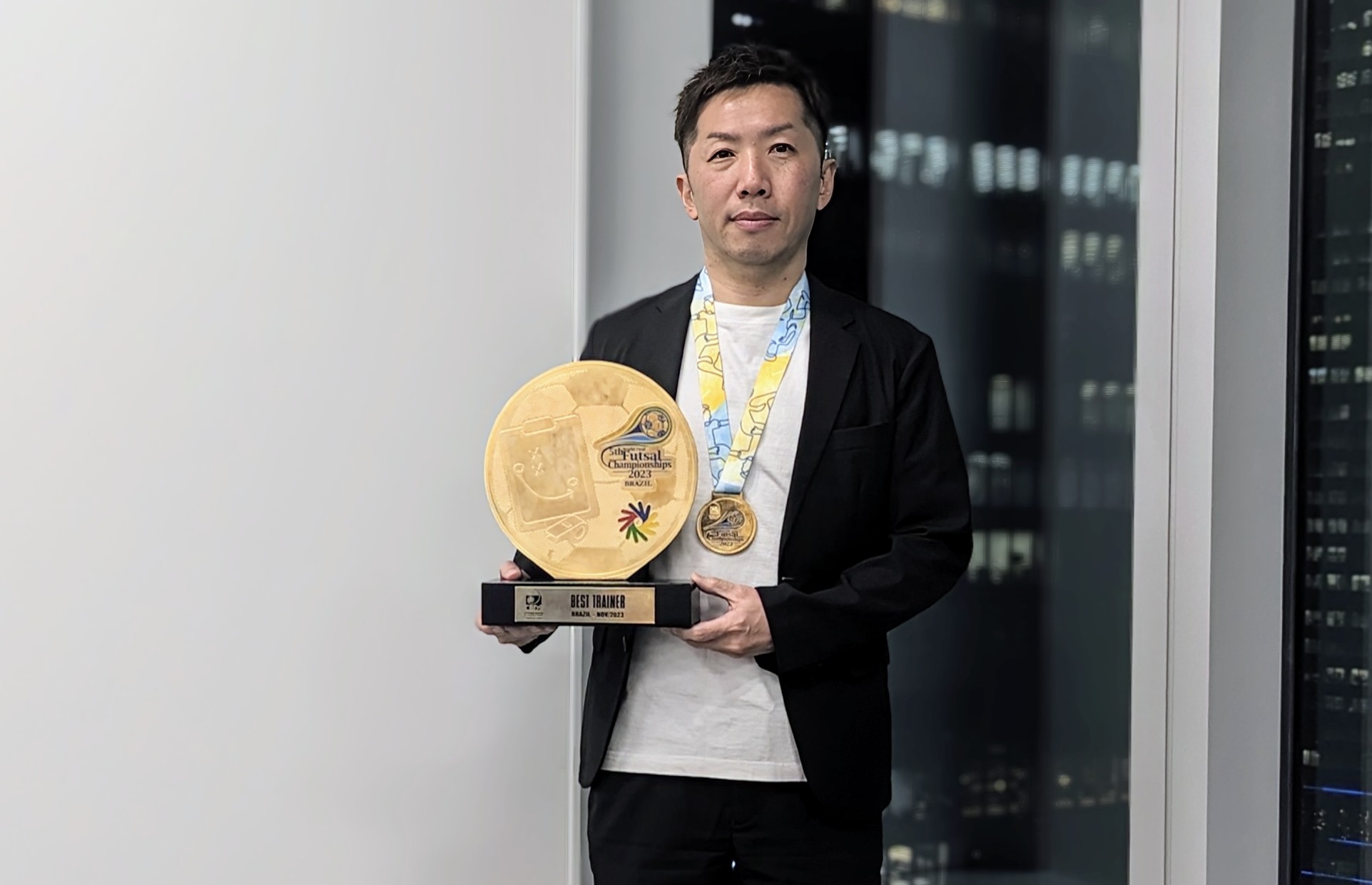
2024.01.29
From chance encounters and timing
Yamamoto-san began his coaching career.
He transformed the mindset of the Japanese national team players, who thought “it would be good if we could just have fun”.
We asked him about his 10-years journey to become the best in the world and the future of Deaf Futsal.
-You led the Japanese women’s national team to its first ever gold medal at the Deaf Futsal World Cup* held in November 2023, what was the most important factor in your victory?
Yamamoto-san At the last World Cup four years ago, we lost to Brazil in the quarterfinals and finished in fifth place. From that point on, we reexamined what we needed to do in order to win the world championship. What made the difference between us and the rest of the world in this tournament was the change in our daily environment and mindset.
The 12 players representing this year’s tournament are either working adults or university students, but they are all members of futsal teams and have faced the sport daily. While the number of companies hiring athletes is increasing, we were able to train daily in an environment where the majority of the players could devote themselves to futsal. In addition, I was able to create a strong sense of team unity, including the frequency of activities. In addition, the fact that I was able to change the mindset of the players over the past 10 years since I took over as coach was a factor in our success in becoming the number one team in the world.
*5th Deaf Futsal World Championships, to be held in Brazil from November 9-18, 2023.
-What do you mean by “changing the mindset of the players”?
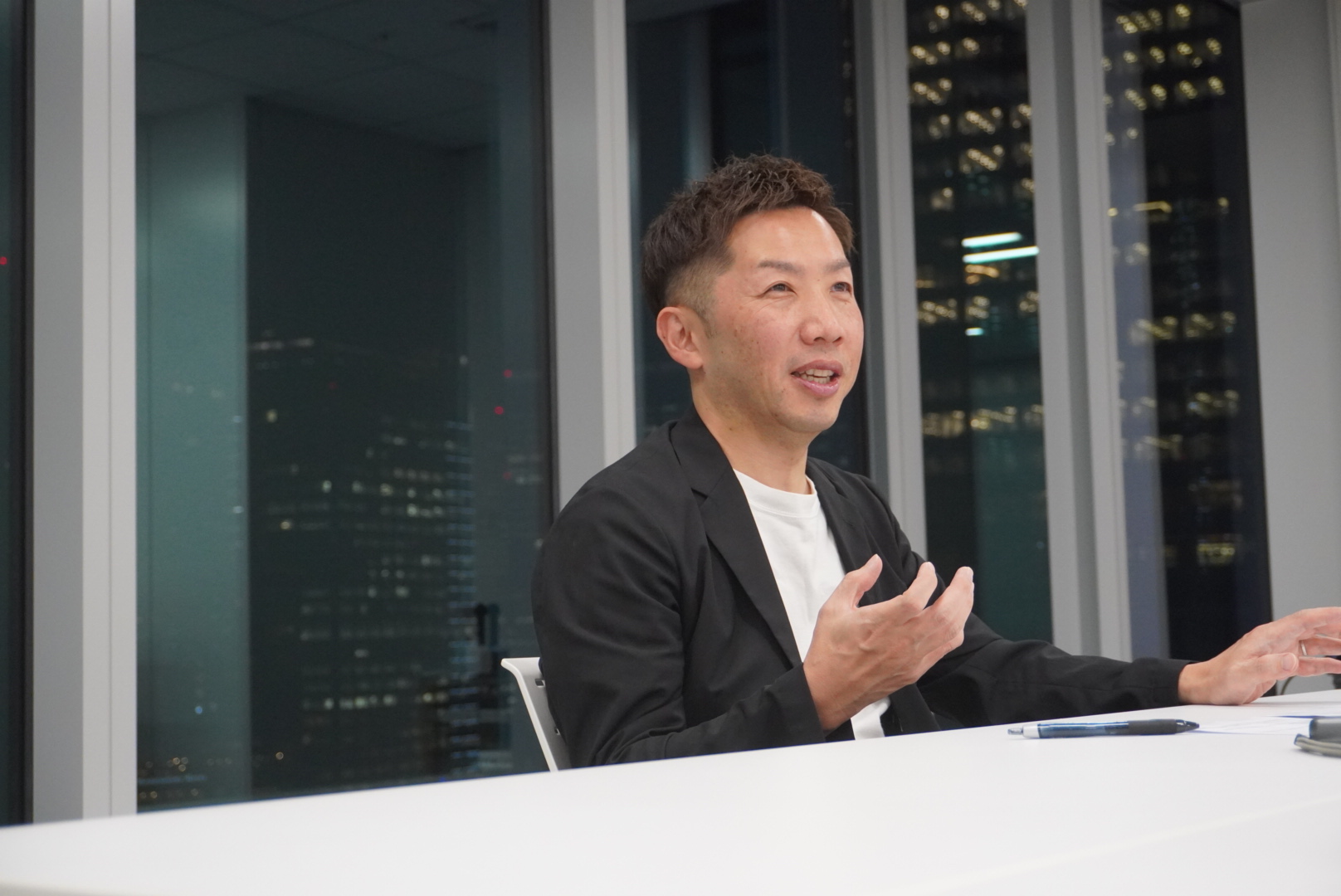
Yamamoto-san When I first became a coach and held training camps, I felt that there was a big gap between the values and ideas that the players had about the “Japan National Team” and those that I had myself. At that time, the players just happened to like playing futsal, and they were able to find a place in the Japanese national team. They started out with the mindset of, “Well, I’ll join.” I spent the first four years of my career trying to change that mindset.
In the end, the important thing is “what kind of mindset to approach daily practice with and what kind of mindset to keep doing it with.” If you don’t change your mindset, no matter how much you practice, you will never grow. That is why I have been saying this to the players for a long time. After 10 years, I think we have finally developed a group of players who have the mindset to represent Japan on the world stage.
-How do you go about changing the mindset of the players?
Yamamoto-san First of all, I tried to verbalize everything as much as possible. To be honest, I didn’t know much about the world of deaf at first, and the athletes had never won a medal, so we set a common goal of “winning a medal” in an easy-to-understand manner. From there, we asked ourselves, “What do we need to do to win a medal?” “What is the national team? “, “Why do we have to take responsibility?” I had to verbalize such questions.
I was not a national futsal player, nor did I have much of a career. However, I was fortunate to have teammates and other Japanese national team players close to me. More than 20 years ago, when even the awareness of futsal itself was still low, I was able to get a close sense of “what kind of efforts and awareness” the Japanese national team players were making to improve their competitiveness and recognition, and I think this became a very important foundation for my work as a coach.
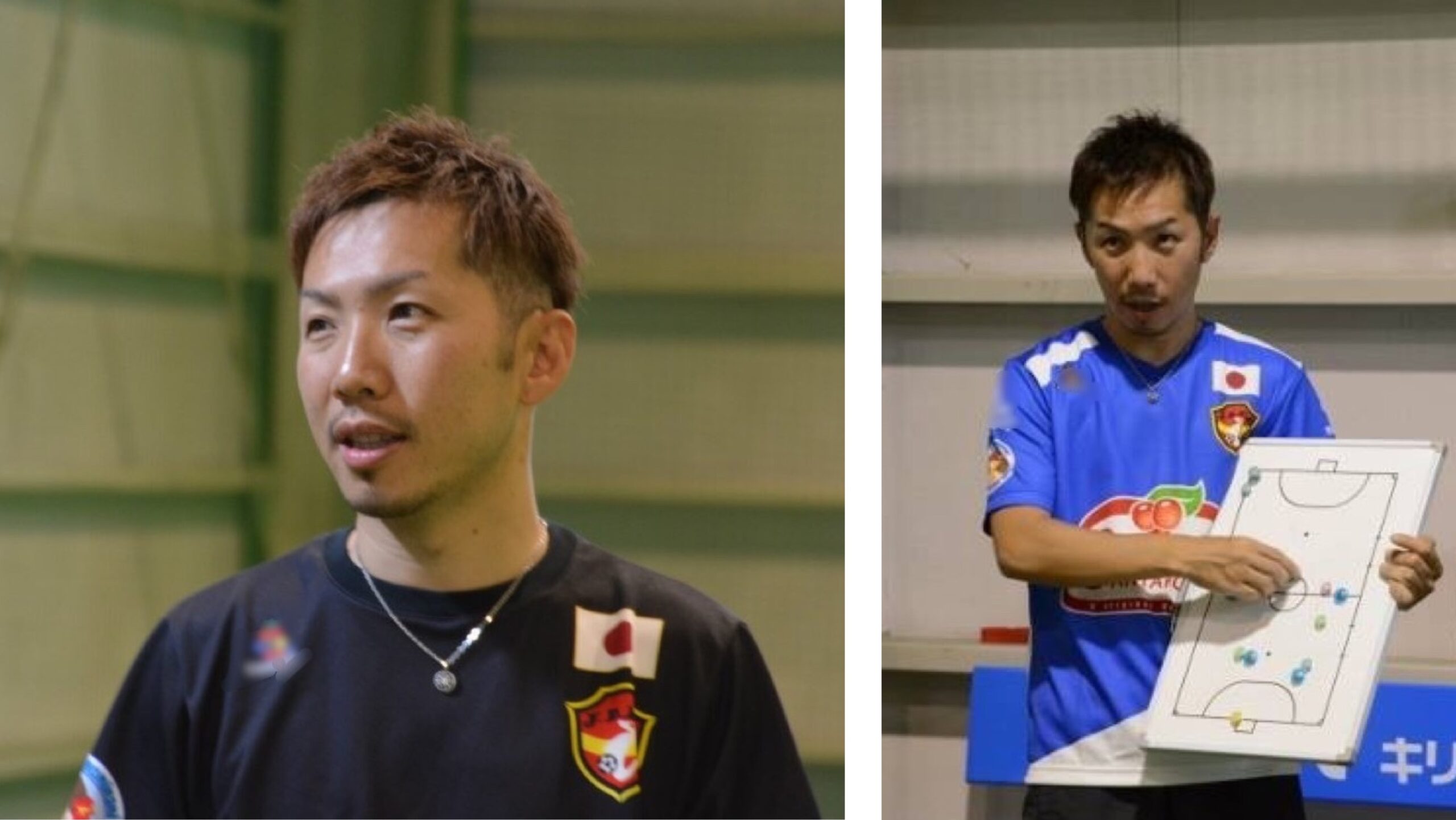
-What was the turning point that convinced the director to win this tournament?
Yamamoto-san There was a lot of drama, I’ll tell you the backstory… The best part was the day and a half after the draw against Ireland in the fourth qualifying game and before the next game against Brazil. This was a big turning point for us. I think the whole team would probably say this. It was such a big event.
The first game of the qualifying group, against England, was a great victory. We won the European championship better than expected, and we were able to start off by saying that what “we had done was not wrong”. The second game against Germany was a draw, but the win against Argentina in the third game gave us momentum again.
…Then, there was the problem of the Ireland game. We drew 1-1 in a big match where a win would guarantee us a place in the finals and our first medal. Ireland was wary of Japan and adopted a very defensive strategy, so it was to be expected that they would have a hard time scoring. However, in this match, I felt that the players were not very cohesive in their feelings from the warm-up. When the game started, their feelings did not translate into play. The result was a 1-1 draw. It was like going from heaven to hell in one fell swoop. I told the team that we had no choice but to switch over, and I went back to my room to watch the game film and reflect on it. Then the mental trainer came to me and said, “Sir, the players just told me something like this.”
※The 5th World Deaf Futsal Championships Final Results (Participating countries: 6)
Preliminary league: 3-2-0, 2nd place (Advance to the final)
Japan 〇 3-0 ●England
Japan △ 0-0 △ Germany
Japan 〇 4-0 ●Argentina
Japan △ 1-1 △ Ireland
Japan 〇 7-1 ●Brazil
■Final match:
Japan 〇 4-4 (PK 3-1) ● Brazil
-What kind of stories from the players are…?
Yamamoto-san “There were problems among the players before the Ireland game, and the players didn’t trust each other.” “We drew with a strong German team and beat Argentina, but we could have scored more points.” Instead of turning the arrow to themselves, many of the players turned the arrow to the outside to find the cause of the problem. This led to a clash of opinions and, unbeknownst to me and the staff, a breakdown of trust between the players. The game against Ireland went on as is, and the result was a draw.
When I heard about it, my first thought was, “What are you doing?” In futsal, there are many times in the flow of the game when things don’t go the way you want them to. That is why I place great importance on how to switch things up when things don’t go well. I have been telling the players for a long time, and they have grown. But I felt that the players were going to start arguing and blaming others during the big game, and I said, “What are you doing?” “What can I do for the team?” You have to understand that and get over it. We have to understand this and overcome it. In order to reunite the team, which was on the verge of falling apart, I told them, “First of all, let’s have a heart-to-heart talk among the players alone.”
After one night, I went to breakfast thinking, “Does everyone look refreshed?” The captain came to my room and said, “It didn’t go well,” “The discussion didn’t turn out the way we had envisioned,” and so on. I told them to try again. Then, for the first time, the players shared their feelings with each other. Some of them even cried as they shared their feelings, and as a result, they were able to unite as one. There was such an episode.
-And despite the pain, did the players win the match against Brazil?
Yamamoto-san That’s right. When the time came for the match against Brazil, and we pulled off that great victory…I felt almost certain that we had a chance to win the championship.
It was a real gamble to let the players discuss it alone. There was a possibility that the team might collapse. However, as a coach, I have continued to trust my players for 10 years, and I have seen up close how they have really struggled to make it through this tournament, including the financial burden they have had to bear. That is why I put my heart and soul into it…. Looking back, I can say this like it’s a beautiful story because I won (laughs).
But when you look at the stories of successful people and their life dramas, there is always a story behind them. I realized that people who have overcome various turning points are the ones who are able to achieve results.
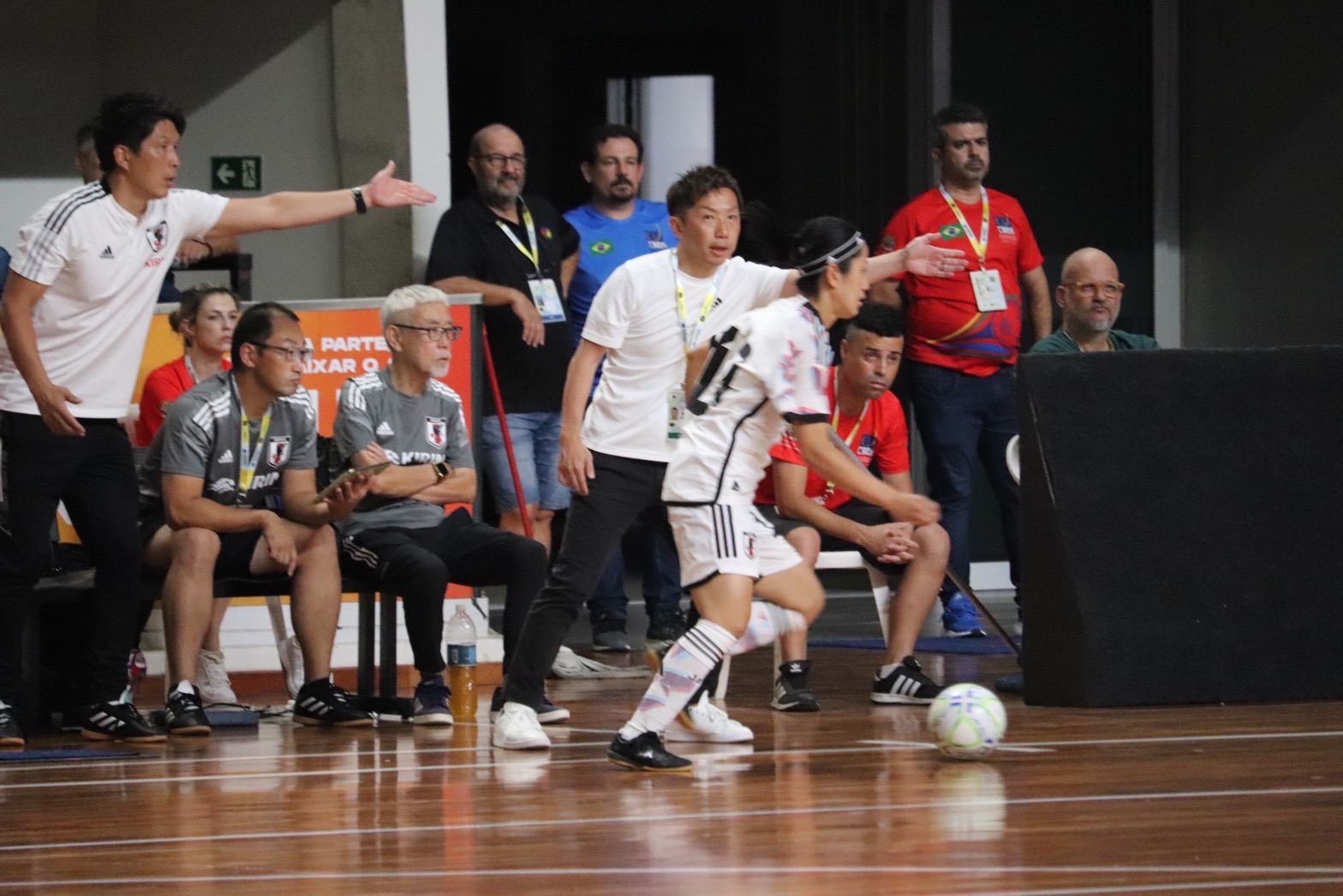
-Did the change in mindset lead to a game against Brazil in which the players trusted each other and showed their full potential?
Yamamoto-san Of course, technique and tactics play a key role, but the foundation is also feelings, and “what kind of mindset you have when you play” will definitely affect the outcome. I realized once again that the more you are on the edge, the more you have to have a strong mindset to win the game with technique alone.
At first I said to the players, ” What are you doing?” , but I also felt that I had doubted them, even for a moment, and I was able to calmly realize that I myself had turned the arrow away from them. In order to trust the players and take charge of the team once again, starting with the match against Brazil, I discussed the situation with all the players, including the staff, saying, “This may be a time of complacency, or it may just be a time for me to get to know the players’ feelings, but I want you to stay with me.
-I didn’t know that was happening before the final…! This is an episode that could be made into a movie.
Yamamoto-san If we had lost…. It is because we won (laughs).
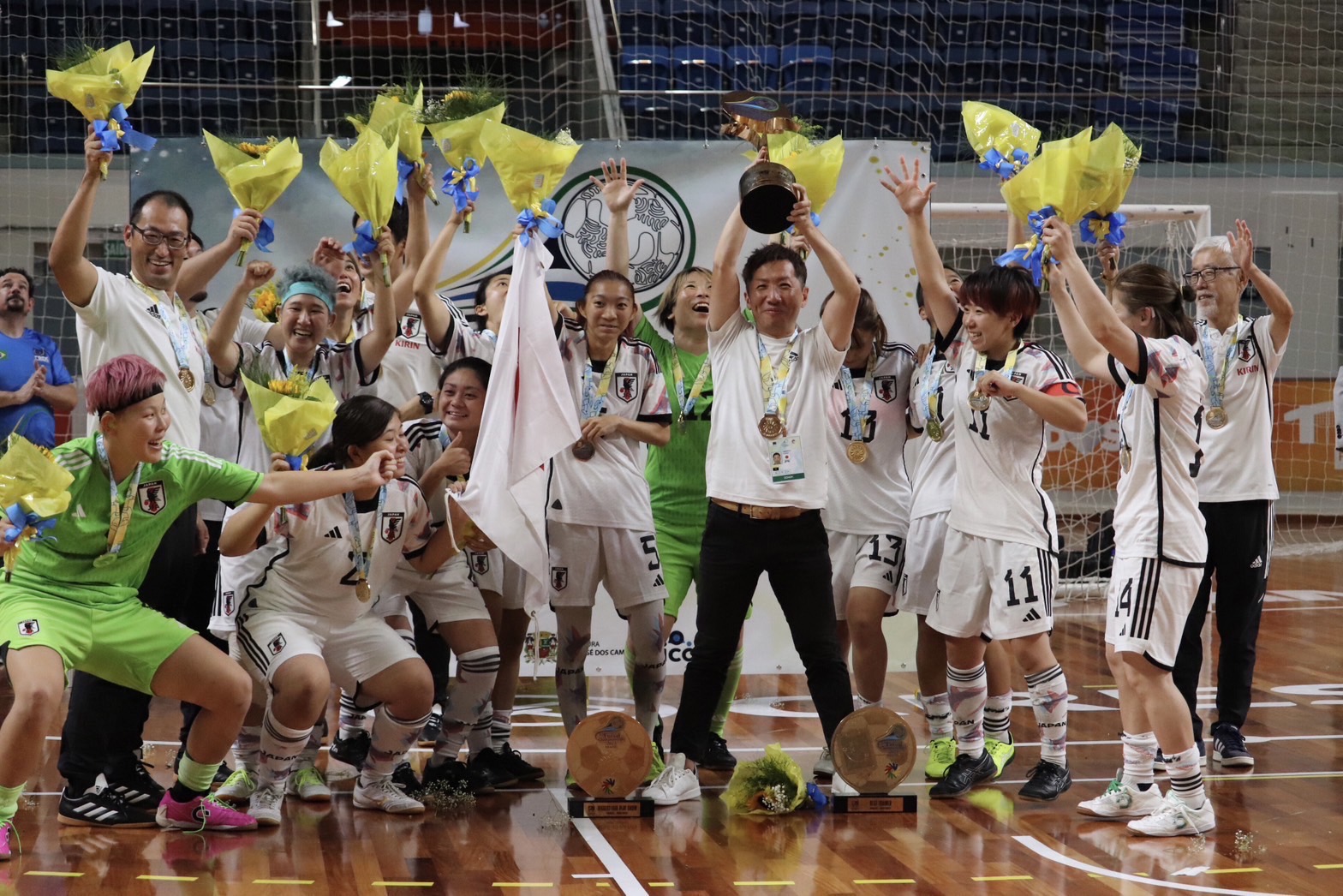
-What are some of the major changes you feel in your 10 years as a national coach?
Yamamoto-san What I have been telling the athletes was that they took what I had been telling them and turned it into action, and actively jumped into the world of able-bodied athletes. At the same time, the environment that accepts Deaf athletes also changed. As they became more knowledgeable about the support they needed, and their values gradually changed, the women’s futsal world became an easier place for them to enter.
At first, I think that the players were seen as a way to get together with other players. But now, I feel that we have come to a point where we are needed as “a player” and not just “a deaf player.” I believe that “social symbiosis is progressing through sports,” and that mutual need and respect for each other are emerging in team sports. I believe that what we have done is right.
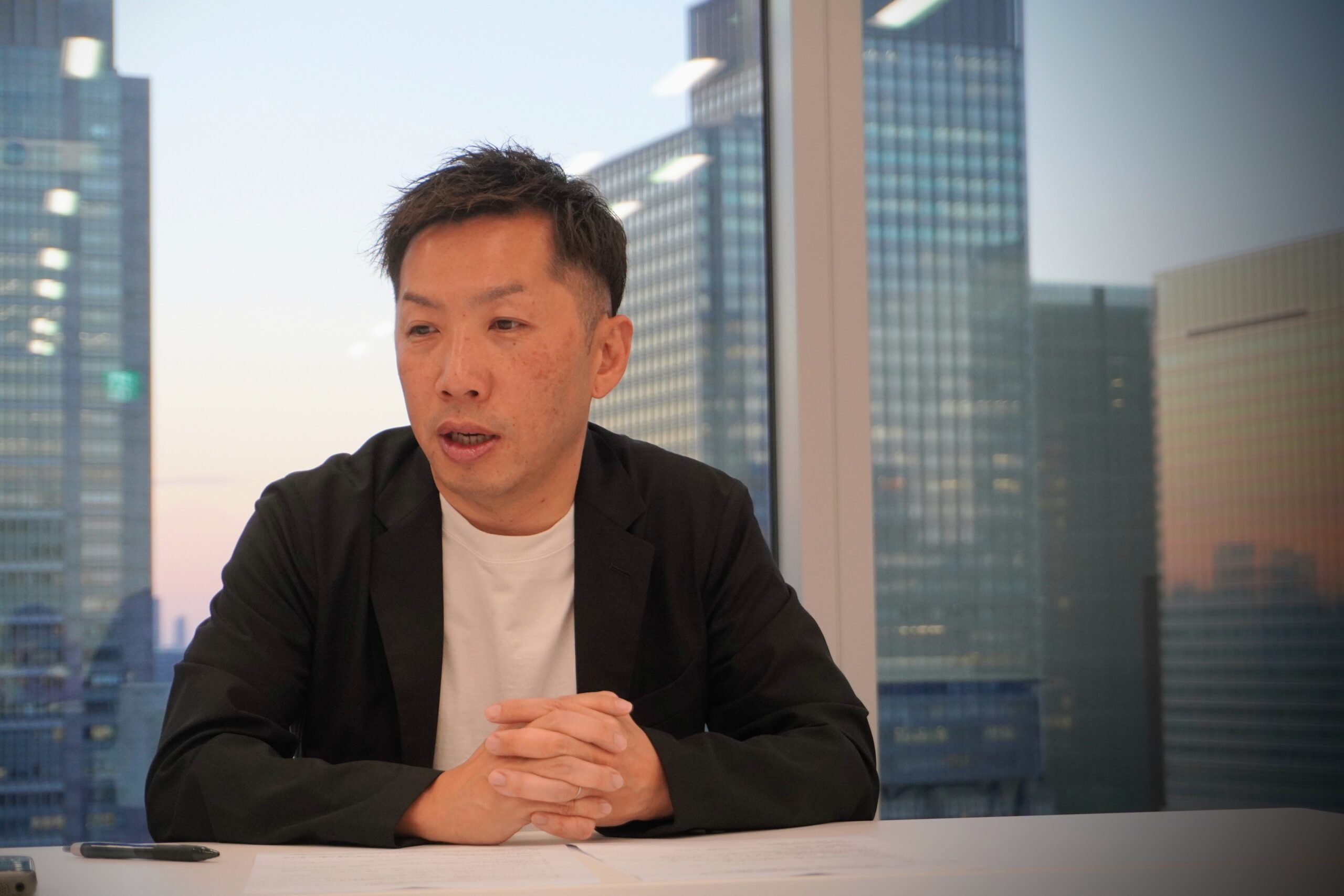
Not only did you win this tournament, but you also received the Best Trainer Award yourself. What do you think was recognized?
Yamamoto-san I think my award is just a bonus (laughs). If I were to receive any recognition, it would be the recognition of the ability and growth of Japanese female athletes on a global scale. I think it means that we have nurtured athletes who are worthy of such recognition. But above all, I was really happy that the athletes were happy before I was happy to receive the award.
-What made you decide to become a national coach?
Yamamoto-san Originally, I did not intend to become a coach at all. Then, after the Great East Japan Earthquake in 2011, deaf people organized a futsal tournament as a charity for the victims of the disaster. I happened to participate in that tournament as a member of a guest team. That was the first time I learned about Deaf Futsal. Until then, I had few opportunities to have close contact with people with disabilities, but when I learned that deaf people could also enjoy futsal, I began to interact with the deaf people. I began to build a relationship with them, even though my attitude was passive: “If there is anything I can do to help you, please let me know.”
At that time, the Japan Deaf Futsal Women’s National Team was looking for a new coach, and I was approached by the Japan Soccer Association for the Deaf after learning of my background…. But it took me half a year to make up my mind to do it. The first thing I was worried about was my lack of values and knowledge about disabilities, and I had no intention of becoming a coach in the first place… and the “Japan national team” is a special place, and I was not ready to take on that responsibility.
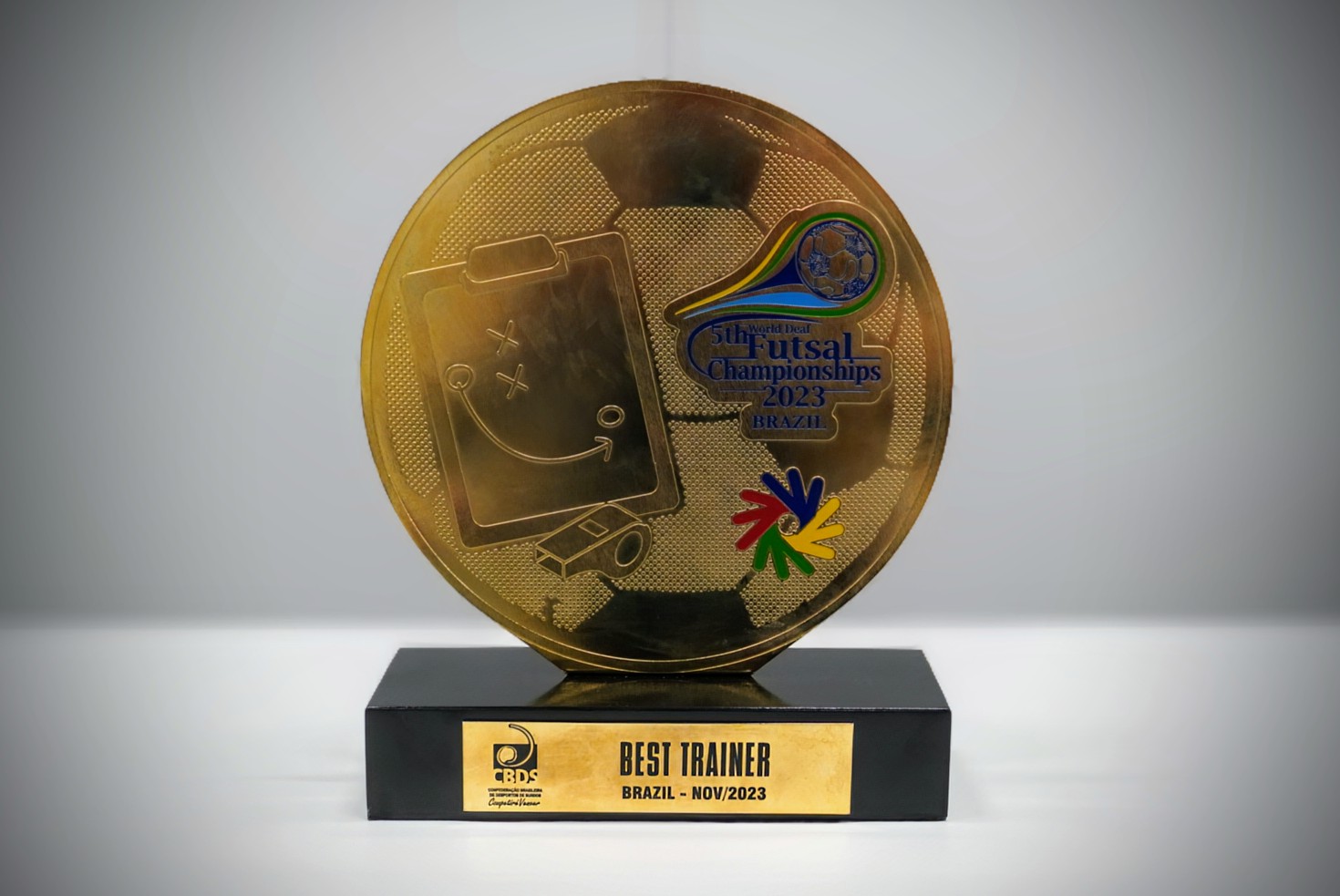
-What was the main reason why you decided to become a national coach after being lost for six months?
Yamamoto-san As I listened to the stories of various people, I thought to myself, “Through futsal and soccer, I have been able to meet and build relationships with a wide range of people, which has enriched my life.” “Then, when the players here today want to choose a similar path, do they have an environment from which they can choose?” . That is where I had a personal thought that it is still unequal. I thought, “If my experience could be useful, I might as well take a chance with my one and only life,” so that I could help change this inequality. So, I made the decision to do it.
But I had a really hard time at first. Of course, the players and staff are all Deaf, and they communicate with each other using sign language. Among them, I was the one who could not sign and did not know how to communicate. I felt very alone…
-There was where you are a “minority” …?
Yamamoto-san Yes, yes, that’s right. But at that time, the idea of “it’s not a disability that makes them unable to hear or walk, but the environment and circumstances that create the disability” was born in my mind, and it was immediately put into my mind. It was a big change in mindset, not to think so hard about the disability, but to think, “I just need to think of a way to communicate well within it.” At first, I was afraid that I would have to be able to use sign language. But when I thought, “If I can somehow convey the message even with gestures, that will be a good start,” I felt that I was gradually getting closer to the players.
-Did you yourself have a “mind change”?
Yamamoto-san Yes, My own mindset has changed a lot, including my way of thinking and values.
-What are you most conscious of when interacting with players?
Yamamoto-san I am most conscious of this from the beginning, but I frequently check to see if what I say is being conveyed properly. This is just my subjective opinion, but I think that people who cannot hear sometimes give up when they have difficulty communicating with those who can.
When I explain this to them, they nod their heads and I think, “They’re really listening.” But when I say, “Well, start with what I just said,” they have no idea what I’m talking about. This happened many times, so I added the process of checking to see if they understood, and communication with the players improved.
-Have you ever thought about quitting as a national coach?
Yamamoto-san …Yes, I did. But I could quit at any time, so I decided to try a little harder, and I kept repeating that. I went to my second World Cup with the feeling that I had done all I could do, but we couldn’t win. When the tournament was over, I wondered if this was my limit, including my own strength….
Some of the players said to me, “I want you to continue the next round. I wanted to do my best again.” When I heard the voices of these athletes, I realized that the athletes themselves needed to grow as I took on the role of coach once again, and that I myself would not be able to achieve any better results if I continued doing the same things I had done up until now. I was thinking that I needed to change the environment as well, when I was offered a chance by my current employer, KI-STAR REAL ESTATE CO., LTD, to spend my daily life involved in all aspects of sports for the disabled, including coaching.
-Has your own environment changed drastically?
Yamamoto-san It was big. It is an issue for the disabled sports community as a whole, but the players often bear the financial burden themselves, and the environment for the staff who support the players is also very difficult. Many of the staff members really cut back on their own time and work after work or on their days off. I am not denying that, but considering the development of sports for the disabled as a whole, it is difficult to develop good leaders and for good leaders to continue unless the staff environment is also changed. I was involved in this situation, and I was very conscious of the need to make changes. During all this, I was lucky enough to have the opportunity to move into the environment that I am in now, and I have been able to continue to do so. In that sense, I am blessed in many ways, and it is great to be in an environment where I have the support of my family and others.
-What do you feel is the difference between Japan and other countries in the world of Deaf Futsal?
Yamamoto-san That is a lot. Overseas, there are very few countries where athletes have to pay their own expenses for competitions. They take the stance that “We are representing our country, so of course we shouldn’t have to pay for it.”
On top of that, I think the stance differs from country to country, but what I feel is clear about the difference is that in many foreign countries, “it doesn’t matter if you have a disability or not”. Even in the case of Deaf sports, local TV stations overseas broadcast the day’s games in real time on the evening news, and at the World Cup finals in Thailand, the venue was filled to capacity for 6,000 to 7,000 people. The cheering section was made up of people who normally cheer for able-bodied soccer players, and they came and cheered for the deaf representatives. They would make a lot of noise, shout all the time, and sing songs. The players on the pitch could not hear them. But with the single-minded desire to show their support, they cheer on the athletes who are fighting on behalf of their country in their own style.
Having seen such differences, I am both excited and anxious to see what kind of space will be created at the Tokyo 2025 Deaflympics.
-What is your own vision for the Deaflympics, which will be held in Tokyo for the first time?
Yamamoto-san This is my personal opinion, but I think that Deaf Sports is not so different from watching able-bodied sports. So, if you just watch the competition, you may end up not feeling what we really want people to feel. I believe that the Deaflympics will have great meaning and value in Japan only if people realize what kind of hearing disabilities these athletes have and the difficulties they face in their daily lives.
I think many people think that “deafness = only sign language for communication.” This idea itself creates a big barrier. I was the same way at first. However, it may be more meaningful to let people know that they can break down the barriers by using gestures, subtitles, and other means if they want to, rather than just kicking a ball around and having them go home.
I hope that the Tokyo 2025 Deaflympics will be an event where people can learn about and feel the hearing impaired as a whole. I believe that many people who cannot hear will come to the Deaflympics to support the event, so I would like to create opportunities for interaction between people who can hear and people who cannot hear. I hope that the Deaflympics will be a competition with a broader perspective.
-Futsal will be used for the first time at the Winter Deaflympics to be held in Erzurum, Turkey in March 2024. What are your aspirations for the tournament?
Yamamoto-san Of course, as we aim to win the tournament, rather than trying new things, our priority is to confirm once again the momentum we gained in winning this World Cup and why we were able to win. We will sort out the issues that came up in this tournament and incorporate them into the areas where we can make even the slightest improvement within the limited time available.
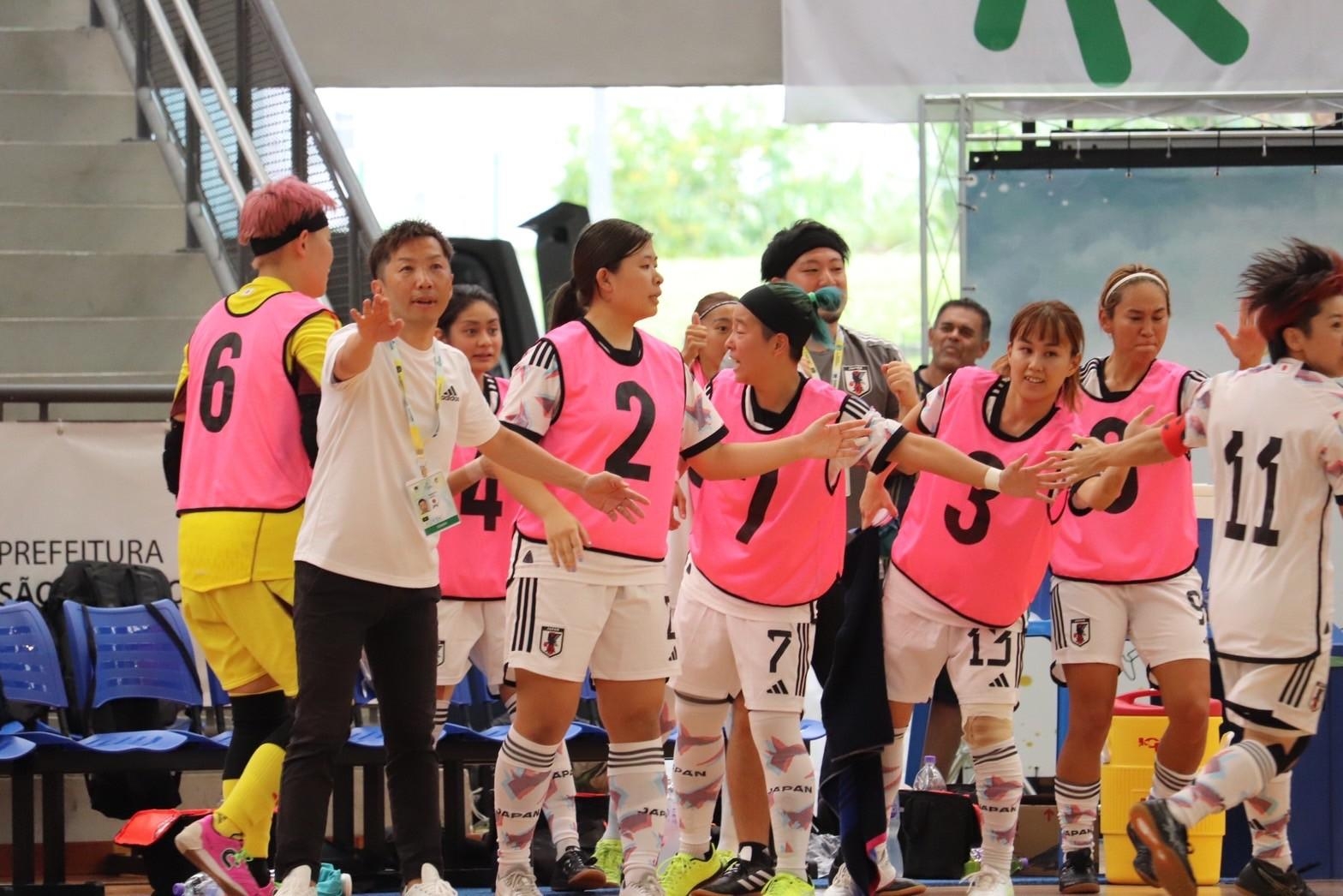
-What is your vision of how you would like to change the world of Deaf Futsal and Deaf Sports in the future?
Yamamoto-san I want Japan to become a place where everyone, regardless of disability, can take on challenges when they want to pursue their dreams and goals through sports. In order to do so, we must first raise awareness of the event as a competition, so I would like to achieve solid results in the competition.
I also hope to use sports as an entry point because it is something that everyone can enjoy and opens up possibilities, so I hope to create opportunities through sports, even in small ways.
As I have more opportunities to give lectures, I often tell students that, for example, when there is a delay on a train, if there is only an audio broadcast, people who cannot hear will feel uneasy. I tell them to look around, even if only for a moment, because there may be people nearby who are having trouble because they cannot hear. I conclude by saying, “Please ask them if they are having trouble using a cell phone, writing, or whatever you can do.”
As people change, so does the environment. I think my role is to share what I have experienced with as many people as possible. It is the most persuasive way to convey what I have felt realistically from my 10 years of experience working with players who cannot hear through Deaf Futsal. I would like to continue to challenge to change the environment with a high mindset.
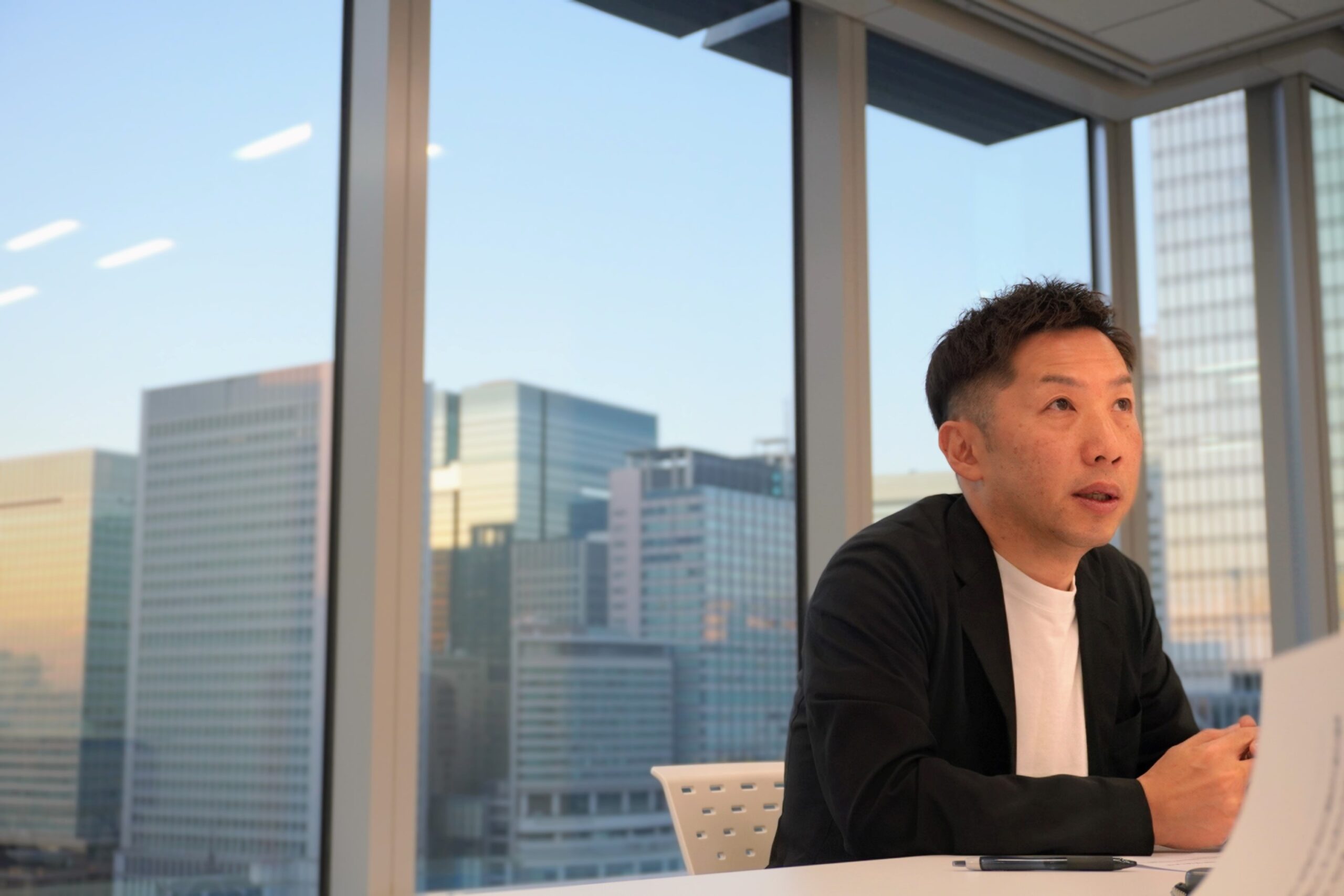
Yoshiki Yamamoto / Born in Nara
Deaf Futsal Women’s National Futsal Team Japan Coach
After a career as a soccer and futsal player, he became the national women’s Deaf Futsal coach in 2013, and also served as the coach of futsal team Baldrar Urayasu Las Bonitas for two years from 2015.
As a Deaf Futsal coach, he led the team to win the World Cup in Brazil in 2023, winning the Best Trainer Award, while constantly improving the team’s performance, including 6th place at the 2015 World Cup in Thailand, to win the Asian Games championship in 2019, and 5th place at the World Cup in Switzerland.
In April 2020, he joined KI-STAR REAL ESTATE CO., LTD. While managing the “KEIAI Challenged Athletes Team,” a group of para-athletes belonging to the company, he is also engaged in activities to promote para-sports and understanding of disabilities with the athletes, making the most of his own background.
Instagram:yoshiki1975
X:@yamayoshi7
Facebook:山本 ヨシキ
2024.07.26

The World Deaf Football Championship (Deaf Football World Cup) was held in the fall of 2023. The Japanese nati […]
2024.07.26
The World Deaf Football Championship (Deaf Football World Cup) was held in the fall of 2023. The Japanese nati […]
2024.06.24

The memory is still vivid today. He won gold medal in the Men’s marathon at the Tokyo 1991 World Athleti […]
2024.06.24
The memory is still vivid today. He won gold medal in the Men’s marathon at the Tokyo 1991 World Athleti […]